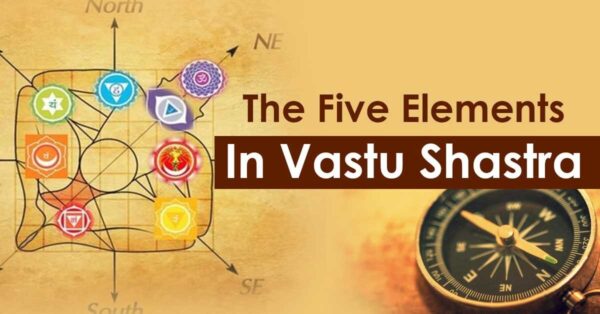Vastu Shastra, an ancient Indian architectural science, has deep roots in the rich tapestry of Indian culture and spirituality. It offers guidelines and principles for designing and arranging homes to harness the positive energies of the universe. In this article, we will explore the history and significance of Vastu Shastra, shedding light on its origins and the enduring influence it holds in creating harmonious living spaces and vastu tips for homes .
History of Vastu Shastra:
The origins of Vastu Shastra can be traced back to ancient texts and scriptures, such as the Vedas and the Shilpa Shastras. These texts, dating back thousands of years, contain references to the principles and practices of Vastu Shastra.
Vastu Shastra evolved as an integral part of Indian culture and architecture, with its early roots in the construction of sacred temples. The architectural principles of Vastu Shastra were initially formulated to create sacred spaces that facilitated spiritual connection and harmonious rituals.
Over time, Vastu Shastra expanded its scope to encompass residential dwellings, reflecting the belief that the design and arrangement of living spaces influence the well-being, happiness, and prosperity of the inhabitants.
Principles and Philosophy of Vastu Shastra:
Vastu Shastra is deeply rooted in the philosophy of the interconnectedness of all things and the harmonious balance of energies. Its principles are based on the Pancha Bhutas, the five elements that make up the universe: Earth, Water, Fire, Air, and Space.
The central idea in Vastu Shastra is to align human dwellings with the natural and cosmic energies, creating a harmonious environment that supports the physical, mental, and spiritual well-being of its inhabitants.
Significance of Vastu tips for Homes:
Vastu Shastra offers a holistic approach to designing and organizing homes, with the aim of promoting positive energies and balance. The given below are the significance of the vastu tips for homes:
- Energy Flow: Vastu Shastra emphasizes the importance of energy flow within a home. By aligning the placement of rooms, entrances, and architectural elements with the natural forces, Vastu Shastra seeks to create a smooth flow of energy, enhancing overall well-being.
- Psychological Impact: The design and arrangement of living spaces can influence our mood, mindset, and daily experiences. Vastu Shastra takes into account factors such as natural light, ventilation, and room functions to create spaces that promote positive emotions, productivity, and peace of mind.
- Spiritual Connection: Vastu Shastra recognizes the spiritual dimension of human existence. It emphasizes the creation of sacred spaces within homes, such as puja rooms or meditation corners, where individuals can connect with their inner selves and the divine.
- Health and Harmony: Vastu Shastra emphasizes the importance of a healthy and balanced living environment. By considering factors such as natural light, air quality, and the use of appropriate materials, Vastu Shastra seeks to create homes that support physical health and overall well-being.
Vastu Tips for Homes:
1) Site Selection:
Vastu Shastra emphasizes the significance of site selection for building a home. Some key considerations include:
- Shape of the Plot: An ideal plot shape is rectangular or square, as irregular shapes can disrupt the flow of energy. It is best to avoid plots with cuts, extensions, or irregular angles.
- Surrounding Environment: The environment surrounding the plot also influences the energy of the home. Avoid locations near graveyards, hospitals, or places with excessive noise or pollution.
- Direction and Orientation: The orientation of the plot is crucial. Generally, the auspicious location of plots are the North and east-facing plots, as they allow for the optimal flow of positive energy.
2) Entrance and Main Door:
- Location and Direction: The main entrance should ideally face north, east, or northeast, as these directions are associated with positive energies and the rising sun. The entrance should be well-lit and easily accessible.
- Design and Material: The main door should be solid and sturdy, symbolizing strength and security. Decorative elements and auspicious symbols can be incorporated, but avoid excessive clutter or obstacles near the entrance.
- Threshold and Entryway: The threshold area should be clean, inviting, and well-maintained. Placing a beautiful doormat or auspicious symbols at the entrance can enhance positive vibrations.
3) Room Placement:
Vastu Shastra assigns specific functions to different rooms and recommends their ideal placement:
- Master Bedroom: The best location for the master bedroom is in the southwest corner of the house. Position the bed so that the headboard is against a solid wall, preferably the south or west wall.
- Kitchen: Always situate the kitchen in the southeast corner of the house. Place the cooking stove in the southeast direction, while the sink in the northeast or north direction.
- Living Room: Place the living room in the northeast, north, or east direction. Ensure ample natural light and good ventilation. Arrange furniture in a way that allows free movement and encourages social interaction.
4) Colors and Decor:
- Color Selection: Vastu Shastra suggests specific colors for different rooms to create a harmonious atmosphere. Soft and soothing colors like pastels and earthy tones are suitable for bedrooms, while vibrant shades can be used in living areas to promote energy and positivity.
- Decorative Elements: Incorporating natural elements, such as plants, crystals, and water features, can enhance the positive energy of a space. Choose artwork and decor that uplifts your spirits and aligns with your personal aesthetics.
5) Energy Enhancements:
- Natural Light and Ventilation: Maximizing natural light and ventilation is essential in Vastu Shastra. Use curtains and blinds that allow sufficient sunlight into the rooms, and ensure windows are regularly cleaned and well-maintained.
- Clutter-Free Spaces: Maintaining a clutter-free environment is crucial in Vastu Shastra. Declutter regularly and organize your belongings to allow the free flow of energy and create a sense of spaciousness.
- Sacred Spaces: Designate a sacred space, such as a meditation corner or a puja room, where you can connect with your spiritual self. Keep this area clean and adorned with sacred symbols, idols, or spiritual texts.
Contemporary Relevance:
Despite its ancient origins, Vastu Shastra continues to be relevant in the modern era. Many individuals today seek to integrate Vastu principles in their homes to create spaces that nurture their physical, mental, and spiritual aspects. While some aspects of Vastu Shastra may be specific to traditional Indian architecture, the underlying principles of balance, energy flow, and psychological well-being resonate with people across cultures. Individuals from various backgrounds embrace Vastu Shastra as a tool for creating harmonious and supportive living environments.
Conclusion:
Vastu Shastra stands as a testament to the deep wisdom and reverence ancient cultures had for the connection between humans and their living spaces. With its historical roots and enduring significance, Vastu Shastra continues to offer valuable insights into designing homes that promote balance, positive energy flow, and overall well-being.
By understanding the principles of Vastu Shastra and integrating them thoughtfully, individuals can create homes that not only serve as physical shelters but also nourish the body, mind, and spirit. As we embark on the journey of creating our personal spaces, let us embrace the timeless wisdom of Vastu Shastra to cultivate harmony, happiness, and prosperity within our homes.
If you want to transform your living spaces according to Vastu, then please Consult Vedic Astro Kendra.
Mobile No.: +91-9319994817, 9319675902
WhatsApp: +91-9319994817
We deliver top-tier products and exceptional customer service to our valued clients. Our offerings includes Online Puja, Yantras and Kavach, Kundali Vishleshan (the creation and interpretation of birth charts), Vastu Shastra Consultations, as well as personalized recommendations for Gemstones and Rudraksha.





